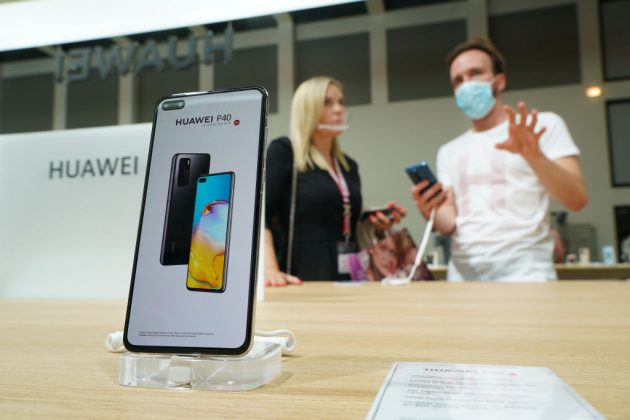Huawei set for year of transition amid ‘technological Cold War’

Huawei will likely transition towards software as a “technological Cold War” controls the hardware supply, shifting the company’s prospects for 2021, analysts have said.
Harsh US sanctions on China have hit suppliers of chips, which are crucial to mobile phone production, and forced the tech giant to look to other avenues.
Ben Wood, chief of research at CCS Insight, told City A.M.: “It’s a tale of two territories because in China they seem to be going from strength to strength.
“Their performance in China with mobile phones has been very strong and was one of the reasons that kept them in the top three mobile phone players during 2020.
“However, the immense pressure they’re getting from this technological Cold War between the US and China has meant that they’re finding it increasingly difficult to source the components they need to make phones.”
The crackdown
The US blacklisted Huawei due to national security concerns in May 2019. The Chinese telecoms firm has faced further blows to its expansion when the UK banned 5G kits from mobile networks and dropped their equipment from broadband networks in July last year.
Other impacts of the turbulent international relations have already emerged, with Huawei forced to sell its budget smartphone brand Honor after US sanctions pushed the company to near collapse in November last year.
Independent telecoms analyst Paolo Pescatore said: “They need to transition to new areas and pivot to new products, new services and business models. Inevitably, services and software are going to be high up on the priority list for Huawei moving forward.”
The disrupted supply of mobile phone hardware will also push Huawei towards securing its own intellectual property.
Wood added: “We expect that Huawei will very much pivot into a number of different areas. They need to be defining their own intellectual property in areas like software in order to be able to have more of a controlling stake in the future of technology.”

A new Cold War
Matthew Howett, principal analyst at Assembly Research, said: “We’ve already seen something of a shift in that direction given the restrictions that they’ve faced by being unable to license the Android operating system from Google in the US.”
US President Donald Trump stoked the fire with a campaign against Chinese technology companies, shutting off Huawei’s supply of US technologies.
Howett added that global politics have had a “profound” impact on Huawei’s success, but the company seemingly remains resilient and observant of new business pathways despite the US’s “sustained attacks”.
Huawei may see some relief under the Biden administration. However, Biden’s leniency is not for certain with his promise to be tough on China’s human rights violations.
The current political climate has “forced” Huawei to develop their own operating system, Harmony OS, which will be developed further throughout this year, Howett added.
Branching out
With Huawei remaining a strong force in the networks market, the company has an opportunity using its footing in networks to branch beyond 5G and into areas like Cloud computing, edge computing and AI.
The telecoms giant appears determined to create a “separate ecosystem” of content by building an independent application gallery, rivalling Android and Apple services and allowing it more mobility in the tech industry.
Huawei’s Harmony OS may be paramount to the company’s effort not only to confront the new tech Cold War, but also to challenge its reliance on Android.
Pescatore added: “The regulatory and security concerns around the East and the West hint why it places greater focus on their own platforms and growing their own platform.”
However, Huawei may struggle to gather support beyond core global apps which is crucial for mass market appeal and remaining relevant in the marketplace.